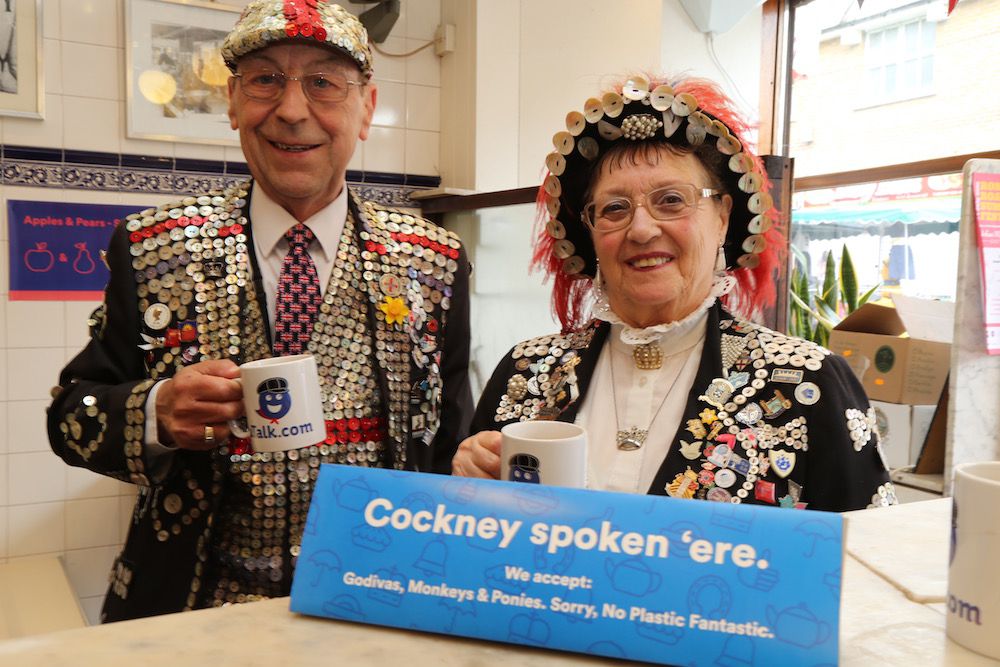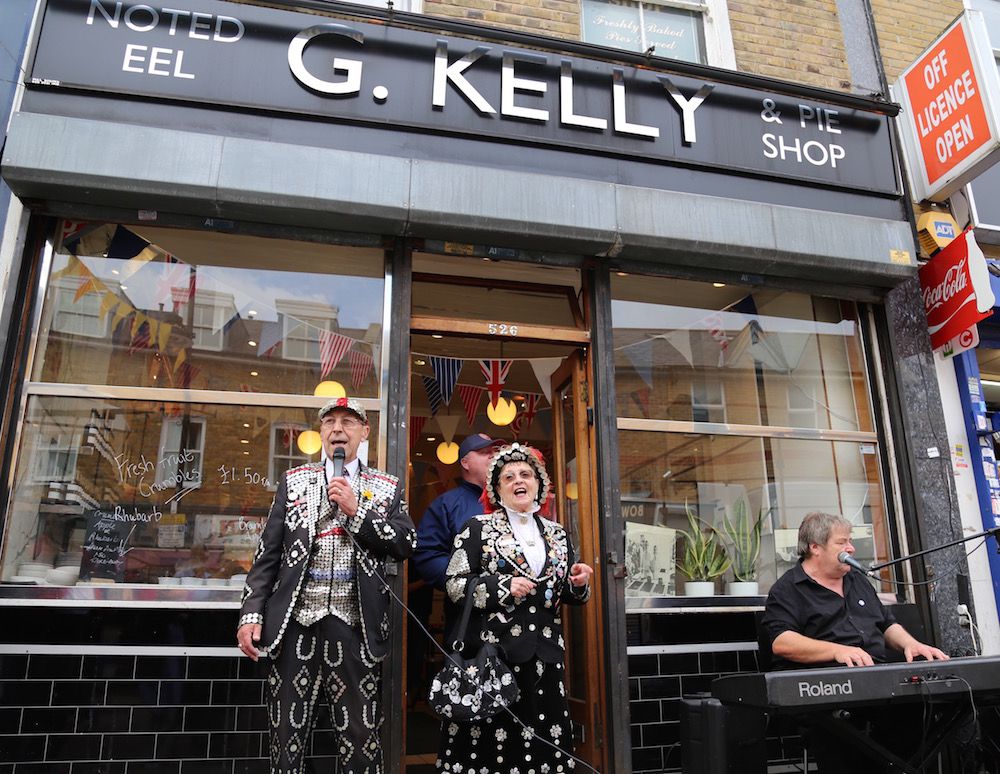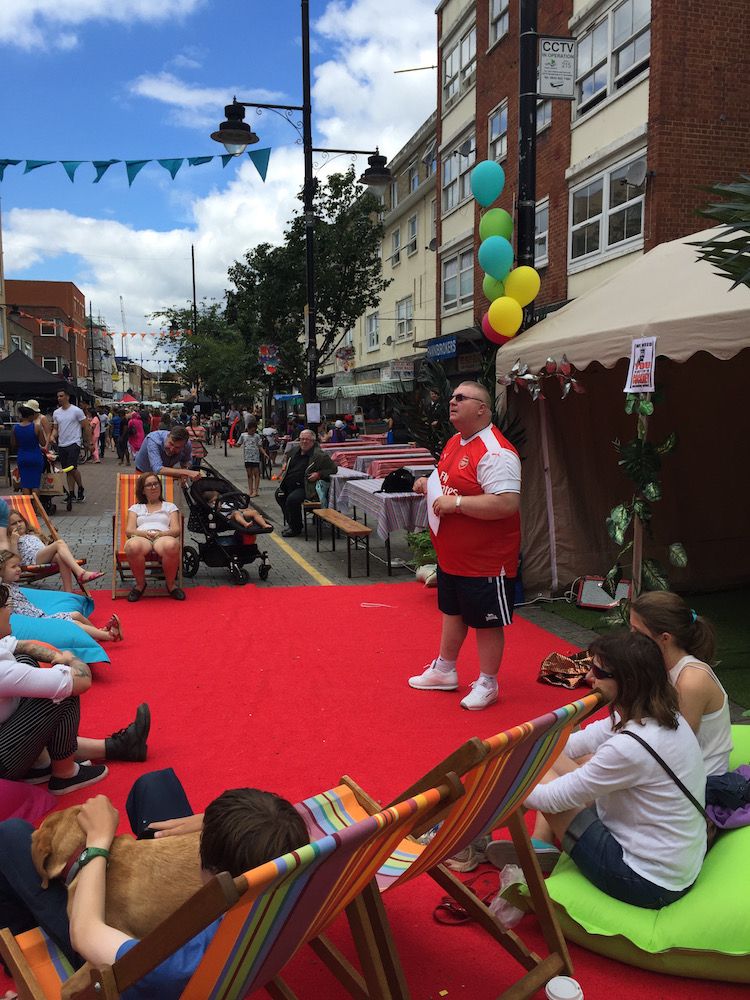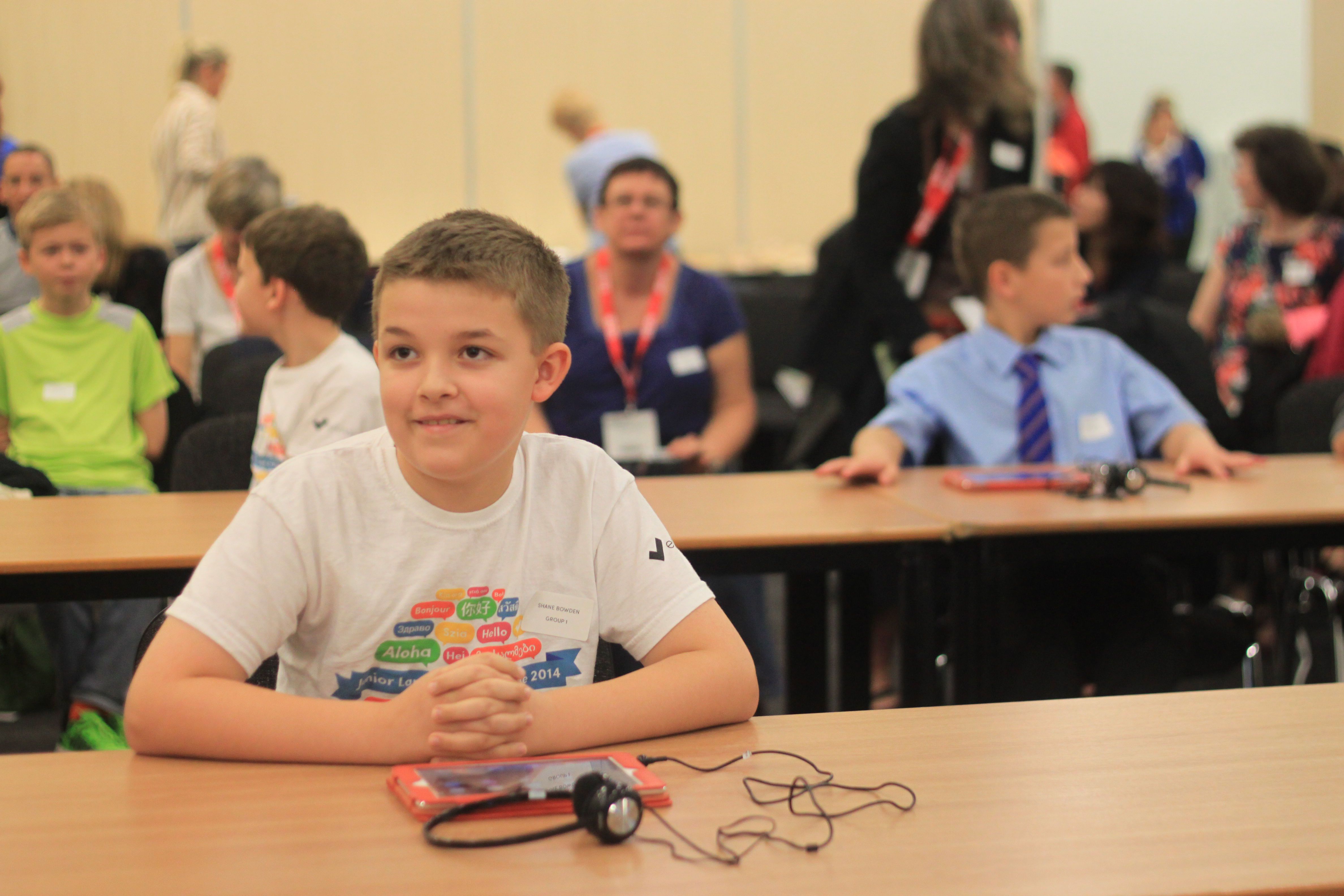uTalk Cockney launches in the East End
If you follow us on Facebook or Twitter, you’ll know that last week uTalk became the world’s first Cockney language learning app! The traditional East London rhyming slang was launched at G Kelly pie shop on the Roman Road by the Pearly King of Forest Gate and Pearly Queen of Old Kent Road.
The Pearly King and Queen learned how to use the app, and were impressed!

Some children from Olga Primary School popped in to put the uTalk app to the test. They had fun playing the games, and were keen to show our chairman Dick what they’d learnt.
And we finished with a good old-fashioned East End knees up, led by our Pearly King and Queen, pianist Mick Yarrow and the voice of uTalk Cockney, Patrick Mackervaie.
It was a fantastic day – thank you to everyone who got involved. Check out our video for more!
Our launch even made the news! As well as a feature on ITV London News on Thursday evening, our language expert Nat appeared on London Live with chairman Dick to talk about the app, and was interviewed with actor Patrick by Robert Elms on Friday morning for BBC Radio London (listen from 1 hour 40 mins onwards).
On Sunday we were back in the East End, giving Cockney lessons to visitors at the Roman Road Summer Festival. Patrick, who’s from Hackney, got the crowd warmed up with some Cockney quizzes (some harder than others), before inviting everyone to come and have a go with the app.
Want to have a go yourself? We’re giving away uTalk Cockney with the Evening Standard – and you get a free month’s subscription to all 133 other languages as well! Just visit eveningstandard.co.uk/offers to get started.
Enjoy! And we’d love to hear what you think – we know Cockney is constantly changing, and that not everyone has the same way of saying things. Email us at mycockney@utalk.com or tweet us with #myCockney to join the discussion!
Kernow Bys Vyken!
It’s not often you hear the Cornish language spoken in the streets of London. To be honest, it’s not often you hear it in the streets of Cornwall, although I promise it does happen, if you know where to look.
But this weekend was an exception, because Saturday was St Piran’s Day, the national day of Cornwall, and London was celebrating in style with its annual Shoreditch celebration, Kernow In The City.
So what’s it all about?
Drinking heavily!
No, I’m joking, of course – in fact, I find St Piran’s Day is one of the more sober Cornish celebrations, as it’s really more about celebrating the culture of Cornwall. Back home, different towns have different traditions, but usually there’ll be music and singing, a parade of some sort, perhaps some dancing and dressing up, occasionally a pasty competition. In Westminster, the Cornish MPs hold a cultural reception which aims to teach more about Cornwall’s identity and culture.
The Shoreditch evening event, which I’ve been going to for a good 4 or 5 years, is also primarily a cultural celebration, with different Cornish talent every year and a heavy focus on music (this year featured the amazing Flats and Sharps as the grand finale, last year saw The Oggymen taking centre stage), as well as a variety of comedians (The Kernow King has been guest of honour in the past, and still usually makes a remote appearance via video).
But get a lot of pining ex-pat Cornish together and a few kegs of Betty Stogs beer and it will inevitably turn into a somewhat tipsy affair, with plenty of drunken dancing by the end of the evening. And that’s part of the reason I love Kernow In The City: every year I take along a few non-Cornish people, who tentatively agree to attend in the full expectation of being hounded out of the venue for being English, and although some of the in-jokes about miniature Cornish villages do go over their heads, and the bilingual compering leaves plenty to be understood, by the end of the evening they’re usually bellowing out the words to Trelawney (our national anthem) with great passion, and dancing with total strangers.
Nothing could do more to dispel the myth of the Cornish cold shoulder than the St Piran’s Day event: take a small interest in Cornish culture and you really will be welcomed with open arms. Learn a couple of words of Cornish and you’ll be the talk of the town. And if you’re going to learn anything, learn these three words: Kernow Bys Vyken (Cornwall For Ever), a toast to make you Cornish friends for life.
Proper job!
Nat










